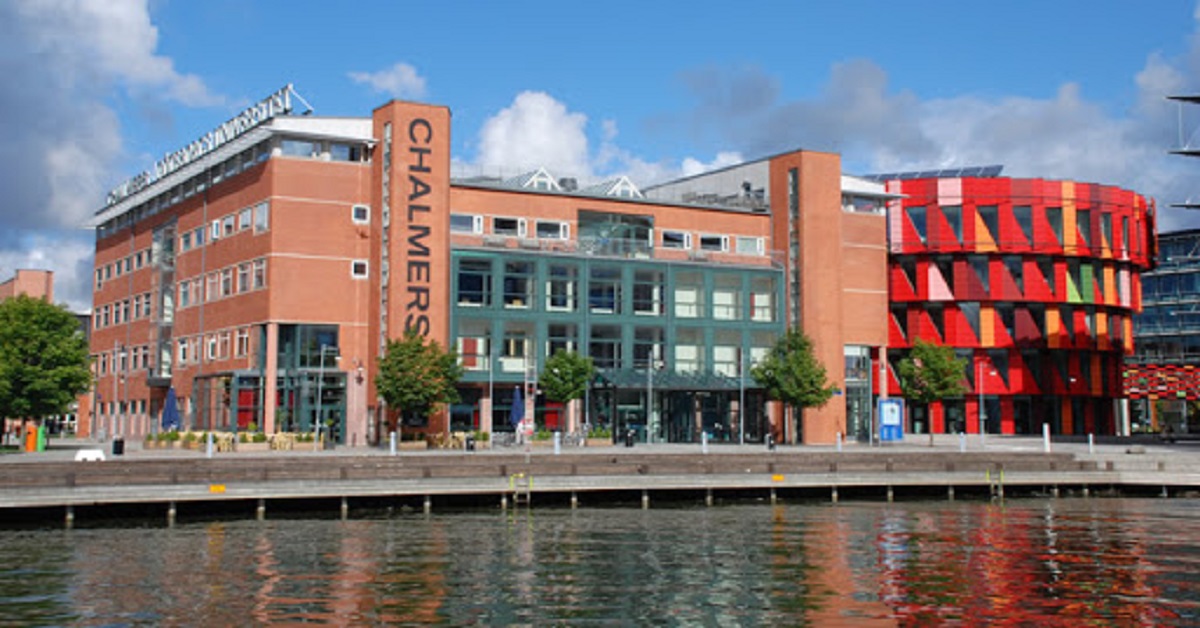
Postdoc in multiphysics modelling of geostructures in FEniCSx, focuses on modelling and characterisation of complex geomaterials
Become part of an active and diverse research group at the Department of Architecture and Civil Engineering at Chalmers! The Geotechnics Research Group (GRG) offers excellent opportunities to develop your academic skills and international networks, whilst scientifically contributing to the knowledge of micromechanics of natural soft clays.
Information about the division and the research
The Geotechnics Research Group (GRG) in the Division of Geology and Geotechnics (GEO) primarily focuses on modelling and characterisation of complex geomaterials, such as naturals and stabilised soils. The research activities aim to bridge fundamental understanding and advanced modelling & testing capabilities with application in engineering practice. GRG has the ambition to become an internationally leading group that pursues the state-of-the-art in experimental testing and modelling at laboratory and field scale. The group has unique laboratory facilities to study the hydromechanical response of geomaterials in climate-controlled conditions, and computational facilities incorporating the latest software developments for computational work.
We are looking for a highly motivated and talented individual to fill a post-doc position linked with a a research project funded by Formas (Swedish research council), which aims to develop a multiphysics model to assess the impact of climate change on the built environment in terms of stability and ground movements. A major component will be the development of an efficient scalable computational framework for multiphysics modelling of geostructures in FEniCSx, accounting for the spatial heterogeneity of the soil and the probabilistic nature of the environmental loading on its interfaces (atmosphere, lower and upper aquifer). In addition to the main supervisor (Prof. Minna Karstunen), the student is supported by Dr Ayman Abed, Prof. Jelke Dijkstra and Prof. Anders Logg, as well as the development team of Digital Twin Cities Centre at Chalmers. The project is part of a larger constellation of projects that focus on modelling the impacts of climate change and mitigation measures on geostructures.
Major responsibilities
Your major responsibility as postdoc is to perform your own research for the project, as an integral part of the project group. In addition to research, you are also expected to contribute to the education at undergraduate or MSc level, as well as other activities within the Division and GRG (up to 10% of their time).
Qualifications
To qualify for the position of postdoc, you must have PhD in Geotechnical Engineering, Computational Mechanics or other relevant field. Note that in general there should be max. 3 years from the completion of the PhD at the date of the application deadline. You need to be numerate, and proficient in programming (e.g. Python, Fortran or C++) and model implementation. Experience in computational modelling in a multiphysics framework is an advantage. The applicants are expected to be fluent in English (both verbal and written communication) in order to work efficiently in a mainly English speaking research environment. Fluency in Swedish would be an additional merit.
Contract terms
This postdoc position is a full-time temporary employment for 2 years.
We offerChalmers offers a cultivating and inspiring working environment in the coastal city of Gothenburg.
Read more about working at Chalmers and our benefits for employees.
Chalmers aims to actively improve our gender balance. We work broadly with equality projects, for example the GENIE Initiative on gender equality for excellence. Equality and diversity are substantial foundations in all activities at Chalmers.
Application procedure
The application should be marked with Ref 20220120 and written in English. The application should be sent electronically and be attached as pdf-files, as below:
CV: (Please name the document as: CV, Surname, Ref. number) including:
• CV, include complete list of publications
• Previous teaching and pedagogical experiences
• Two references that we can contact.
Personal letter: (Please name the document as: Personal letter, Family name, Ref. number)
1-3 pages where you:• Introduce yourself• Describe your previous research fields and main research results• Describe your future goals and future research focus
Other documents:
• Attested copies of completed education, grades and other certificates.
Please use the button at the foot of the page to reach the application form. The files may be compressed (zipped).
Application deadline: 30 april 2022.
For questions, please contact:
Professor Minna Karstunen Geology and Geotechnics
Email: minna.karstunen@chalmers.se
*** Chalmers declines to consider all offers of further announcement publishing or other types of support for the recruiting process in connection with this position. ***
Chalmers University of Technology conducts research and education in engineering sciences, architecture, technology-related mathematical sciences, natural and nautical sciences, working in close collaboration with industry and society. The strategy for scientific excellence focuses on our six Areas of Advance; Energy, Health Engineering, Information and Communication Technology, Materials Science, Production and Transport. The aim is to make an active contribution to a sustainable future using the basic sciences as a foundation and innovation and entrepreneurship as the central driving forces. Chalmers has around 11,000 students and 3,000 employees. New knowledge and improved technology have characterised Chalmers since its foundation in 1829, completely in accordance with the will of William Chalmers and his motto: Avancez!
![Sydney University [AU]: Research and Academic Opportunities](https://scholaridea.com/wp-content/uploads/2020/12/University-of-Sydney-768x403.jpg)
![Postdoctoral and Research Opportunities at McGill University [CA]](https://scholaridea.com/wp-content/uploads/2020/06/mcgill-university-30-may-2019-768x402.jpg)
